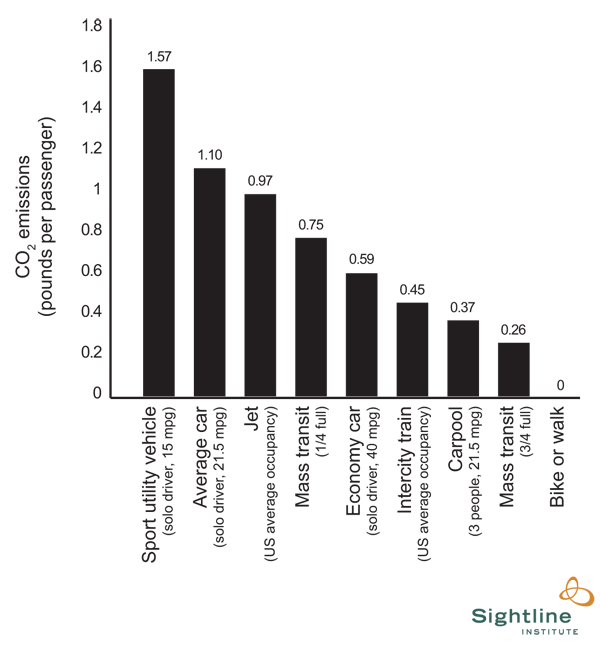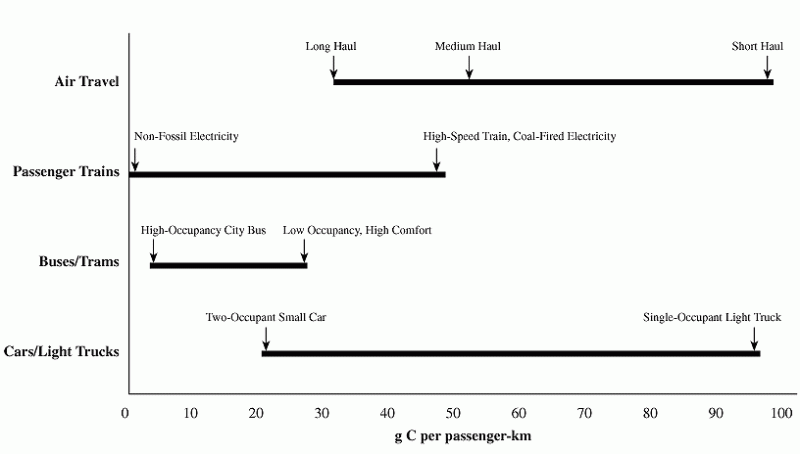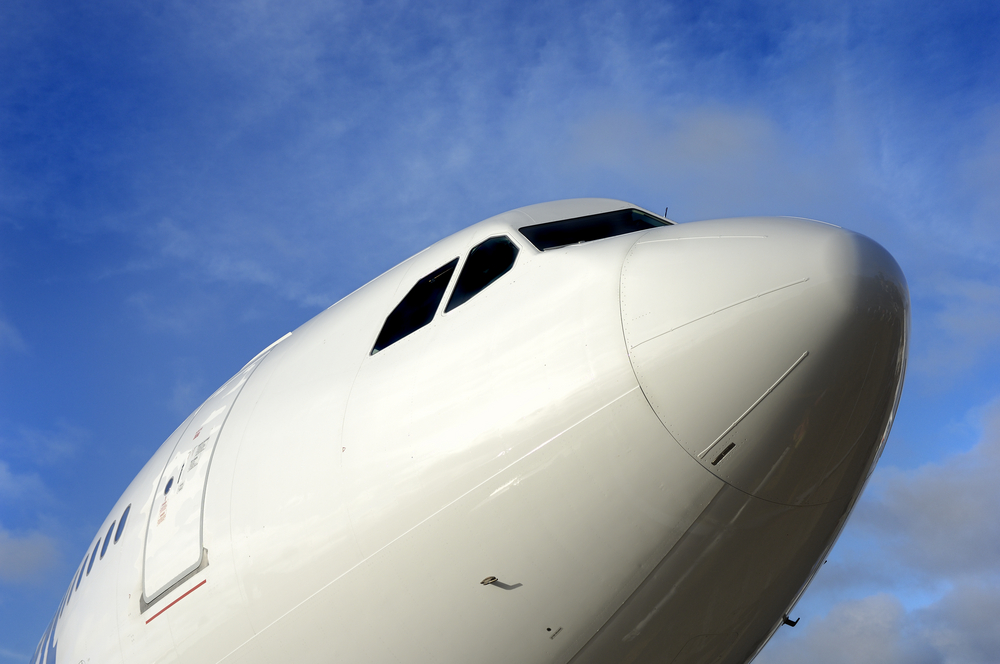 We asked the question: Is it better to drive than to fly for business or vacation travel? Surprisingly, the answer may be NO. Or more accurately, IT DEPENDS.
We asked the question: Is it better to drive than to fly for business or vacation travel? Surprisingly, the answer may be NO. Or more accurately, IT DEPENDS.
This was an interesting and challenging question because of the number of variables involved. The answer depends on the length of your journey, how full the plane is, whether you’re driving solo or carpooling, and many more factors!
One of the more recent and detailed analyses I came across done by Sightline Institute actually found that the worst way to travel (for the planet) was by driving solo. This applied whether the vehicle you were driving was an SUV or an average car. The best transportation choices in this study were to hop on a bus, take a train, or to carpool with 2 other passengers.
 An earlier report from the IPCC shows the complexity of variables at play. In this analysis, it makes a big difference whether you’re taking a short haul or long haul flight, and whether you’re driving a truck to your destination or a small car.
An earlier report from the IPCC shows the complexity of variables at play. In this analysis, it makes a big difference whether you’re taking a short haul or long haul flight, and whether you’re driving a truck to your destination or a small car.
 Financially, your best choice will again be influenced by a variety of factors, especially where you are heading. When calculating your driving costs, don’t forget to factor in higher gas prices in other provinces (CAA quotes an average of 130c/L nationally), wear and tear on your vehicle (budget about 5c/km for the average vehicle), and meals and hotels. For flights, don’t forget to include the cost of taxis or buses to and from the airport (city buses are a very inexpensive option).
Financially, your best choice will again be influenced by a variety of factors, especially where you are heading. When calculating your driving costs, don’t forget to factor in higher gas prices in other provinces (CAA quotes an average of 130c/L nationally), wear and tear on your vehicle (budget about 5c/km for the average vehicle), and meals and hotels. For flights, don’t forget to include the cost of taxis or buses to and from the airport (city buses are a very inexpensive option).
If you’re planning on taking a train or bus, keep an eye on upcoming or last minute sales. Consider joining mailing lists to catch deals early.
Some of the best options for work travel or family vacations can also be close to home. Teleconferencing, “Skyping” and webinars are all great options for businesses looking to cut their carbon and their budget. And some of the most relaxing vacations I have been on have been right here in Manitoba.
What are some of your favorite ways to travel carbon (and dollar)-light?




Usually when you r on holidays you drive highway. My car uses 7l/100km(34mpg) and my mom’s suv uses 10l/100km(24mpg).
I think their stats r off.
Great comments! I couldn’t take a close look at the factors involved in the evaluation done by Sightline Institute. In the second case, the figures given from IPCC seem to suggest you would need to consider each leg of your flight journey separately as short, medium or long haul, and then add these together for an idea of your trip’s total impact.
Looking at Peter’s question, I assume the first evaluation is in US gallons, as the organization is based in the U.S. The IPCC evaluation and later CAA quotes are in metric.
Anyone want to guess the carbon footprint of Canadian generals taking holidays in their private jets?
Minor question: what is the above referenced gas mileage in, Imperial or US gallons?
One factor I don’t see mentioned which may affect the analysis of flying is whether you are taking a direct flight. Do the calculated numbers assume equal distance traveled using all modes of transportation? Connecting flights are sure to increase the carbon footprint of flying. If I want to fly from Winnipeg to Denver the carbon footprint will be significantly different whether I take a direct flight vs. connecting thru Minneapolis, Chicago, Calgary, etc.